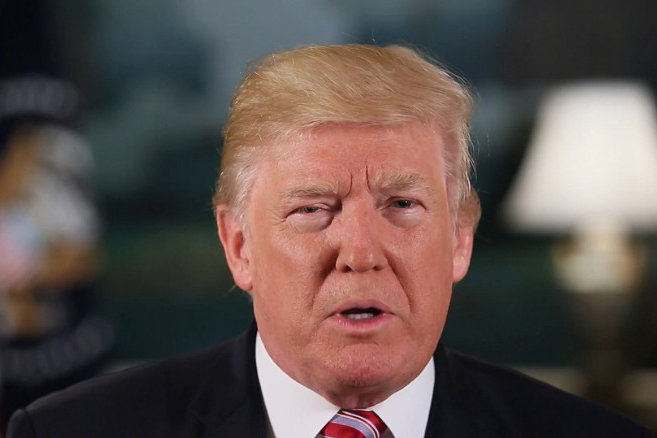Can Europe move from rhetoric to action on Iran deal

Just hours after the United States withdrew from the UN's cultural organization, Richard Hass the President of the Council on Foreign Relations wrote in a tweet “Trump’s foreign policy has found its theme: The Withdrawal Doctrine. The U.S. has left/threatening to leave TPP, Paris accord, UNESCO, NAFTA, JCPOA.”
By the time this paper appears on the newsstands, Donald Trump, the U.S. president, should have made his decision on whether the 2015 nuclear agreement with Iran is in the interest of the U.S. and whether Iran is complying. Irrespective of the fact that the International Atomic Energy Agency (IAEA), has repeatedly certified Iran’s compliance.
In the meantime, in Europe, Trump's move to abandon the nuclear deal, would be seen as far more damaging than his decision in June to pull out of the Paris climate accord. German Foreign Minister Sigmar Gabriel on Thursday said that any move by Trump's administration to withdraw from the Iran nuclear deal would drive a wedge between Europe and the U.S.
The two-year old agreement known as the Joint Comprehensive Plan of Action, or JCPOA, was a remarkable diplomatic feat among others as a rare example of European unity. EU members finally could set their differences aside and reach a compromise. That’s why fearing Trump might not certify Iranian compliance with the JCPOA European capitals launched “one of the most intense lobbying campaigns in recent memory” in the U.S. to save the deal. European officials in Tehran also employed different measures to assure the Iranian public of Europe’s support for the agreement. Some even employed unusual methods. Germany’s Ambassador Michael Klor-Berchtold tweeted photos of himself posing with “Yes to JCPOA” Posters hanged on the outside wall of German embassy in Tehran. German media referred to the move as “a clear message of support” for the international agreement.
Berlin’s ambassador later gave a statement saying “Germany and its partners will continue their efforts so that the people of Iran and their families enjoy all the potentials of the deal in their everyday life.”
EU caves in to U.S. pressure
Despite all these campaigns, the post-sanctions environment in Iran has been full of contradictions and Iranians have mixed feelings about the benefits of the deal. Even though major European firms like Airbus, Total and Siemens announced big deals in Iran, benefits from the 2015 accord have yet to reach Iran’s 80 million people. Part of the problem is that hardly any major banks want to get involved in projects and business with Iran due to U.S. sanctions that remain in place. And despite all the rhetoric in support of the accord, Europeans have failed to stand up to the United States and effectively resolve this huge problem.
The UK ambassador to Tehran confirmed the above point in an interview with Iran Students News Agency on Wednesday. Nicholas Hopton said “…some of these banks face issues due to the remaining American primary sanctions including the financial institutions that trade using USD. They have restrictions for working with Iran. There are financial institutions active in the UK that have trade with Americans and use USD for their transactions. This reduces the possibility of cooperation between big international banks including British banks with Iran….”
‘Illusion of division’
In Iran, skeptics[m1] of the JCPOA believe, to think of a division between U.S. and EU is merely an “illusion”. They say due to close transatlantic bonds between the EU and the U.S., Europeans are not able to turn away from Washington and history has proven that members of EU always coordinate their policies with the U.S. Therefore, they believe the U.S. along with the European countries are playing ‘good cop bad cop policy’ with Iran in order to extend the JCPOA and impose stronger limits on Iran’s ballistic missile capabilities as well as its regional role beyond the timeline set out in the accord. Iran has repeated that its missile program is for defensive purposes and is not open to any negotiations.
Just days before Trump’s Friday speech on Iran policy, outgoing Germany’s Foreign Minister Sigmar Gabriel, had described Trump’s concerns about Iran as “justifiable” and suggested that European allies are ready to ramp up pressure on the country through diplomatic means to engage it on the difficult subject of the Middle East.
All said, for Europe to save “this rare triumph of international diplomacy” and gain back the trust of Iranian people, far more than symbolic gestures and rhetoric are needed.
EU ambassador to Washington David O’ Sullivan said last month that if Washington targets European firms that do business in Iran, Brussels would revert to a 1990-era law that shield European companies from extraterritorial sanctions. Only time will tell if Europe is really prepared to stand up to the United States and prove the skeptics wrong.
Leave a Comment